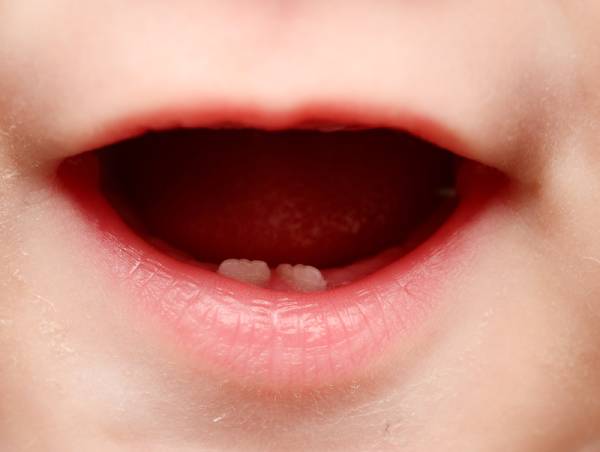
When you don’t feel good, sometimes your whole personality can change. The same is true for your baby. When their teeth begin to come in, they can often become a little cranky. So, how do you know if your baby is teething? What do you do for a teething baby and how can you help them get some relief? Here are a few tips to get you and your baby through the teething stage and come out smiling.
When Does Teething Start?
Some babies begin teething early, around four months of age. The average age for teething to begin is six months, but some babies may not start teething until closer to eight months. The first teeth to make an appearance are generally the bottom two front teeth. However, factors such as family history can come into play, so the order teeth appear can be different for every child.
Signs of Teething Baby
Just like the timetable for every baby is different when it comes to teething, so are the signs and symptoms. If your baby is exhibiting excessive fussiness and irritability and other factors have been ruled out, teething could be the reason. There are other indicators that can alert you to the onset of teething such as persistent drooling. If your baby’s drooling resembles a leaky faucet, there’s a good chance a new tooth is coming in. Your baby could also begin crying more than usual or have a change in eating or sleeping habits.
Seeing hints of a tooth erupting through their gums is an obvious clue, but you may notice they have gums that appear red or swollen. Chewing more than usual can be a sign as well. They may be chewing on their fingers – or yours – so beware! Being knowledgeable of the symptoms associated with teething can help you recognize when your baby begins to experience it.
Is Fever a Sign of Teething?
A slightly elevated body temperature is often associated with teething. But teething alone doesn’t cause a fever. While babies may rub their cheek or pull on their ear when teething, if this behavior is accompanied by a fever, it is important not to ignore it. If a teething baby’s temperature is greater than 101, it’s best to speak with your pediatrician.
Soothing Your Teething Baby
No one likes to see their baby uncomfortable! Fortunately, there are some things you can do to help alleviate the pain and make them more comfortable.
Rub Their Gums – A teething baby’s gums can become very sore as teeth begin to erupt. This early stage of the teething process is a good time to rub their gums. When you rub their gums, the pressure can aid in pain reduction. Though it is temporary, it can be enough to allow them to calm down. Once they are able to relax a bit, they may be happy with toys or something to eat.
A gum-rubbing bonus? Getting them into the habit of having you rub their gums is a great segue into healthy brushing habits as those primary teeth come in.
Teething Toys – Giving your baby something safe to chew on can help them soothe the discomfort themselves. There are many child-safe teething toys, but you’ll want to be sure it is age-appropriate and something they can’t chew pieces off if they already have a few teeth poking through their gums. Remember to confirm that the toy isn’t small enough to be swallowed or put completely in their mouth.
Cold Compress – A cold compress can bring relief for sore gums no matter the age. This simple remedy can help provide relief when your baby is experiencing teething troubles. It’s as easy as cold water on a wash cloth. Placed on their gums, even fussy children can get some relief.
Pain Medicine – Bedtime can be a challenge with a teething baby. When coupled with changes in sleep patterns and excessive fussiness, getting a good night’s sleep becomes just as important for you as it is for baby! There is pain relief medication available for infants. If the pain persists into the night, you may need to resort to medication. Try using other remedies first but if you find it necessary to use pain medications, follow the medication’s directions carefully.
While there may be some fussy times as each tooth comes in, these tips should help you get your teething baby through the process with as little discomfort as possible. By the time your child about three years old, their set of 20 primary teeth will have come in giving you both something to smile about.

Contact Walbridge Dental
Questions about fluoride? The professionals at Walbridge Dental have the answers. From routine cleaning and exams to advanced restorative treatments, we offer complete family dental care to families in the Millbury community. Contact us online to set up an appointment now or call us at 419-836-1033.
Connect on Social Media!
